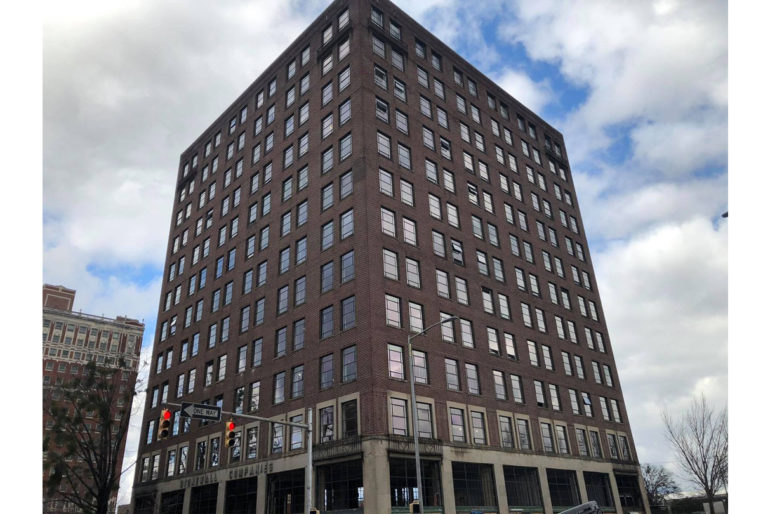[Photo: The American Life Building on 4th Avenue North in Birmingham will be transformed into working-class housing through Opportunity Zone funds. The image captured Feb. 26, 2020. (Anna Beahm | [email protected])]
April 22, 2021
An Alabama organization at the forefront of federal Opportunity Zones now has a fund to encourage groups traditionally underrepresented in investing.
Opportunity Alabama is ushering out its $13 million OPAL Fund – created to invest in real estate projects and engage minority and woman-owned business ventures in development and management.
Initial investors in the OPAL Fund include the Regions Foundation and Alabama Power Foundation; family offices, such as Jemison Investment Company; community trusts like the Housing Affordability Trust and Alabama-based corporations.
Opportunity Alabama, a non-profit created to be a “one stop shop” for everyone from investors to developers to communities, will be able to “intentionally and strategically diversify our investor base,” CEO Alex Flachsbart said.
“With The OPAL Fund, we will work to ensure investors and our deals are representative of the diverse tapestry of Alabama, and that opportunities for wealth-building are equitably available,” he said.
Opportunity zones were created as part of the 2017 tax overhaul. The initiative allows people to sell stocks and other investments and delay capital gains taxes for years by putting the proceeds into projects in the zones. Alabama has 158 opportunity zones located in all 67 counties.
Since its creation in 2018, Opportunity Alabama has helped close $300 million in deals for projects across the state. Last year, Forbes named it as the best opportunity zone community organization for rural communities.
The OPAL Fund’s investors also include individual investors such as Larry and Kim Lewis of PROJECTXYZ, an black and woman-owned technical solutions company headquartered in Huntsville.
“We have spent the past two-and-a-half years building relationships with national capital sources and with developers working in Alabama’s Opportunity Zones, making introductions and providing technical assistance to help get deals done,” Flachsbart said. “We see The OPAL Fund as our opportunity to get more local capital into projects in our own backyard.”
To learn more about The OPAL Fund, click here.

